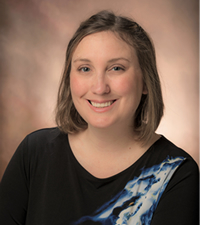Find a CBT Therapist
Search through our directory of local clinicians.
Elise Clerkin

1. How long have you been a member of ABCT?
I first joined ABCT in 2004 and fondly remember the conference held in New Orleans that year.
2. What type of mentor do you aspire to be? Do you have a mentorship philosophy?
I believe most people learn best in environments where they are simultaneously challenged with high expectations and supported within a culture that promotes positive feedback, equity, collaboration, perseverance, and a growth mindset. I aspire to motivate my students to think critically, be intellectually curious, and conduct rigorous clinical science and practice. Simultaneously, I actively seek ways to help my students feel a sense of purpose in their work and well-being in their lives. My role as a mentor is not to create clones of myself (what a terrible world that would be!), but instead to listen deeply to my students in an effort to help them maximize their own values and goals within this broad, ever-evolving field of clinical psychology. I also think that the very best mentors are those who are lifelong learners themselves, and as such, I strive to be a student who is continually learning-both personally and professionally.
3. What practices do you engage in that foster your mentorship style?
I hold high expectations for the students in my lab, and I try to provide them with developmentally appropriate scaffolding and hands-on support to help them thrive. For instance, I meet with my students regularly in both individual and group lab meetings. I recognize my own limitations and inability to mentor in all areas, and I help students seek out the resources they need to succeed. I bring my “full self” to work and encourage my students to do the same. I laugh frequently and apologize when I make mistakes. I intentionally promote a mentality that “all ships rise together.” I ask that my students explore the many hats a clinical psychologist can wear, while also doing my best to match students’ unique strengths, values, and goals with corresponding learning opportunities.
4. What are your strengths as a mentor?
I’ve been effective at selecting wonderful people to work with, and then purposefully taking steps to foster a cohesive, supportive lab culture. A gratifying-and unexpected-joy of leading my lab is witnessing how much my students authentically care about one another. Another strength I have as a mentor is that I place a very high value on the professional development of my students, and as such, I make choices that will prioritize their growth (e.g., efficiently providing engaged and substantive feedback on manuscripts; putting sustained effort toward funding opportunities that will most directly benefit my students, etc.).
5. Whom do you perceive to be your most influential mentors? Describe the main lessons that you have learned from your mentors.
This question is humbling, because it causes me to reflect on the staggering number of supportive people I’ve interacted with throughout my life. I would not be where I am without the many family members, friends, mentors, students, and colleagues who have inspired me to learn, and who have helped me to “get back up” and persevere even when life has thrown some terrible punches. In conjunction with this broad network of support, including my fabulous colleagues at Miami University, there have been two people who have been most influential in my professional growth as a clinical psychologist. The first is Dr. Bethany Teachman, who embodies what it is to be an outstanding mentor. As one of her doctoral students, I watched Bethany simultaneously model how to conduct clinical science with the utmost rigor, while also caring deeply about the “full selves” of each of her mentees. For this and many other reasons, I owe a debt of gratitude to Bethany that I will spend my entire career trying to pay forward. The second is Dr. Joshua Magee, my husband and best friend, who has been on this professional and personal journey with me since we met in graduate school. Now, we are fortunate to work together at Miami, co-mentor students, and pursue collaborative grants and publications (including our very greatest “publications”-our 8- and 4-year-olds!). Josh’s keen intellect and commitment to producing quality science has made me a stronger researcher, and his consistent support has made me a more patient and effective mentor.
6. What do you tend to look for in potential mentees?
Please see my answer to #7. :
7. What advice would you give to other professionals in your field who are starting out as mentors?
Find the teams of people and individuals who you enjoy working with, and who will help foster your growth both as a professional and as a human. In this profession, we are lucky to interact with a lot of very smart people. Yet, are they kind and generous? Are they intellectually curious? Do they have a good sense of humor? Are they humble? Will they persist in the face of obstacles? Are they empathetic? Will they add a valuable new voice and perspective into the work? Can they integrate different perspectives and information into their existing world views? Ultimately, relationships with colleagues, students, and friends helps us to find fulfillment, engagement, meaning, and joy in the work that we do.
8. What do you enjoy doing for fun/relaxation?
I love reading, especially memoirs. I enjoy living in this golden age of TV and have been known to binge watch an entire Netflix series in a week. I’m a big podcast fan (shout-outs to Crooked Media, the Pod Save crew, and Ezra Klein). I appreciate delicious plant-based food, being in nature, and travelling. More than anything, I love spending time with family and friends.
